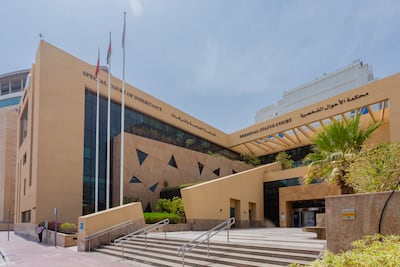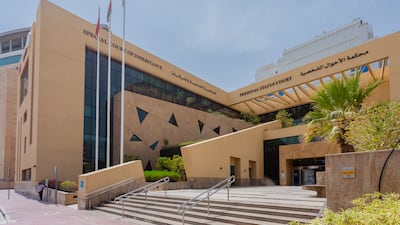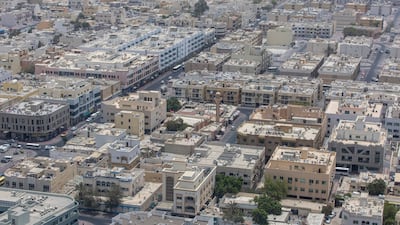Sweeping legal reforms introduced in the UAE have paved the way for expatriates to draw up wills based on laws in their home countries.
The key changes to inheritance rules — brought into force in September 2020 — were part of wider changes to personal status laws aimed at encouraging more people to lay down roots in the Emirates and to bolster foreign investment.
Previously, assets would be automatically divided under Islamic law, or Sharia.
A Dubai court set up to examine inheritance disputes involving both Muslims and non-Muslims was established in September and has already dealt with 16 cases involving assets of close to Dh1 billion.
Judge Mohammed Al Shamsi, who is president of the court, urged people to seek legal advice before drafting wills and to make sure their intent is clear to avoid problems arising down the line.
“The clearer a will is, the faster and less complicated its implementation will be,” he said.
Verdicts by this court are issued by a panel made up of a judge from the court of first instance, another from the appeals court and a third from the court of cessation.
As all three levels of the emirate's judiciary system are represented, verdicts are considered final when passed.

This is in line with, for example, criminal rulings which must be approved by all three of the above courts before they are binding.
“This is to ensure all inheritance cases and cases that relate to them or may arise from them go through the three levels of courts before one judiciary body in a time frame that we hope will not exceed a maximum of one year,” Mr Al Shamsi said.
During an interview with The National, Mr Al Shamsi answered the most pressing questions the court receives about its powers and execution of the law.
Can non-Muslims use the laws of their home countries when executing a will?
They can do so and can actually request to implement any law of any country based on article 17 of the civil law. The law has been modified by Federal Decree-Law number 30 of the year 2020 which came into effect on September 30, 2020.
However, they need to submit justifications for their choice of the law and a legal translation of its last updated version.
If beneficiaries request different laws to be implemented, we call this ‘clash of laws’ and we request applicants to each provide the updated law and the legal base for their requests.
If the will didn’t mention which law to be implemented, we implement the UAE’s law.
What forms of wills are recognised by UAE law?
There are two types, one that dedicates a portion of the inheritance to a person, but does not name other heirs. In this case beneficiaries must issue an inventory which can be requested online and issued in one day.
An example of this is when a man leaves 20 per cent of his cash to his wife or assigns the management of his company to one son but doesn’t mention the rest of his assets or other beneficiaries.
Another type is one that details all assets, beneficiaries and their shares and this doesn't require an inventory certificate.
Both types can be processed rapidly if beneficiaries are in agreement to their content.
In case a will was verbal and was denied by any of the beneficiaries, they will need to lodge a case.
Where can wills be registered?
At DIFC Courts and Dubai Courts’ notary public.
Does the court recognise wills issued from other countries?
Wills issued from outside the country will be recognised by our court but must be translated into Arabic, attested and notarised by relevant authorities in the UAE.
When will a foreign law not be implemented?
If the inheritance includes real estate units inside the UAE, in this case UAE’s law will be implemented, and if the foreign law allows for the implementation of an article in the will that violates the UAE’s principles.
Why do some cases take a long time?
While opening a case file takes only two days, the actual period of legal proceedings can take much longer due to many factors such as the number of beneficiaries.
In all the cases we are looking into there are more than 12 or 14 members.
Another factor is corresponding with establishments such as the deceased’s employer, if any, land departments, banks, public departments in the emirate and the country. This is done to inquire about the deceased’s assets, entitlements and debts.
Also, cases involving wills that are not clear or lack legal elements take longer.
I advise residents to seek help from inheritance lawyers to make sure their wills are accurate and clear, which will help implement them faster.
How can procedures be expedited?
Dubai Inheritance Court allows heirs to personally contact involved departments after providing them with a permit and copies of all official correspondence.
We also make sure to re-contact these departments or assign one of the court’s representatives to visit them and speed up procedures.
Does the court freeze bank accounts following an inheritance dispute?
Freezing bank accounts that are part of a disputed inheritance is not an automatic action by the court and it requires beneficiaries to submit a request.
It is an online application that is processed rapidly.
Another important detail people need to know is that residential units — whether houses, buildings or land plots — inside the UAE that are part of an inheritance dispute are not the jurisdiction of our court.
These are under the jurisdiction of the land department.
How do you look at assets that exist outside the UAE but are part of inheritance disputes here?
Assets of deceased Dubai residents outside of the UAE that are part of their wills are under the laws of the country in which they exist.
The Dubai court's role, in this case, is to only prove the beneficiaries’ rights in these assets. Dividing them between beneficiaries happens through that country’s courts and based on their laws.
Accepting and acknowledging the Dubai court's decision in this regard is subject to the laws in these countries and if there are any judicial treaties between the two countries.
Since your verdicts are final, what can a person do if they are not happy with the verdict?
They can either submit a plea requesting judges to reconsider their verdict and they need to explain why, or submit a request to the technical office at the court citing an error in the judgment.


















